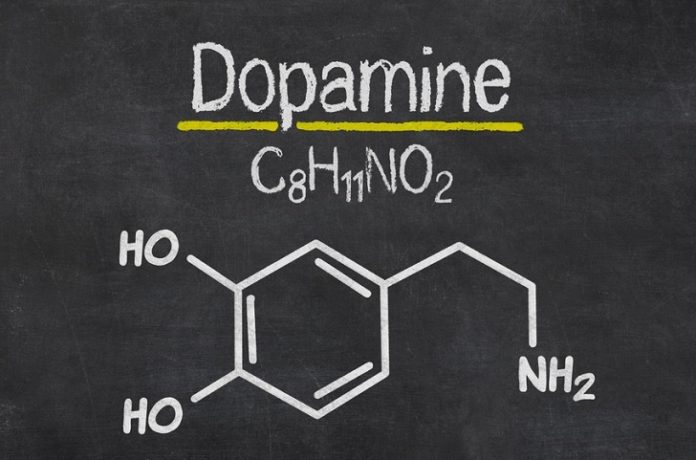Dopamine, often referred to as the “feel-good” neurotransmitter, plays a vital role in shaping our behavior and overall well-being. Understanding the intricacies of dopamine is not only fascinating but also crucial for comprehending the underlying mechanisms behind motivation, reward, and addiction. In this comprehensive guide, we delve deep into the world of dopamine, exploring its functions, effects, and implications on human psychology. Join us on this enlightening journey as we uncover the wonders of dopamine.
Dopamine is a neurotransmitter that is responsible for regulating our brain’s reward and pleasure centers. It plays a crucial role in our motivation, mood, and movement. In this guide, we’ll explore the functions of dopamine, how it works in the brain, and its effects on our behavior and emotions.
What is dopamine and how does it work?
Dopamine is a neurotransmitter that is produced in several areas of the brain, including the substantia nigra and the ventral tegmental area. It is released into the synapse, or the gap between neurons, where it binds to dopamine receptors on the postsynaptic neuron. This binding triggers a series of chemical reactions that ultimately lead to changes in the activity of the postsynaptic neuron. Dopamine is involved in a wide range of functions, including movement, motivation, reward, and pleasure.
I. The Fundamentals of Dopamine
Dopamine is a chemical messenger, or neurotransmitter, that carries signals between nerve cells in the brain. It belongs to a class of neurotransmitters known as catecholamines, which also includes norepinephrine and epinephrine. Dopamine acts as a key regulator of various cognitive and behavioral processes, playing a critical role in motivation, pleasure, movement, and emotional responses.
II. Dopamine and the Brain’s Reward System
One of the most prominent roles of dopamine is its involvement in the brain’s reward system. This intricate network of neural pathways motivates us to seek out pleasurable experiences and reinforces certain behaviors. When we engage in activities that bring us joy or satisfaction, dopamine is released, creating a sense of pleasure and reinforcing the associated behavior.
III. Dopamine and Motivation
Dopamine is intricately linked to our motivation and drive. It acts as a powerful catalyst, fueling our desire to pursue goals, achieve success, and experience personal growth. When dopamine levels are balanced, we feel motivated, focused, and determined. However, imbalances in dopamine can lead to issues such as lack of motivation, lethargy, or difficulty concentrating.
IV. The Role of Dopamine in Addiction
Addiction is a complex phenomenon that involves the hijacking of the brain’s reward system. Dopamine plays a pivotal role in addiction by reinforcing the pleasurable effects of certain substances or behaviors. When an individual engages in addictive substances or activities, dopamine floods the brain, creating a sense of euphoria. Over time, the brain becomes reliant on the dopamine surge, leading to compulsive behaviors and addiction.
V. Dopamine and Mental Health
The impact of dopamine extends beyond motivation and reward. Research has shown that dopamine dysregulation can contribute to various mental health conditions, including depression, anxiety, and schizophrenia. Understanding the intricate interplay between dopamine and mental health is crucial for developing effective treatment strategies and improving the overall well-being of individuals affected by these conditions.
VI. Boosting Dopamine Naturally
While dopamine-boosting medications exist for certain medical conditions, it’s important to explore natural methods for enhancing dopamine levels. Several lifestyle factors can positively influence dopamine production, such as regular exercise, a balanced diet, quality sleep, and engaging in activities that bring joy and fulfillment. By adopting a holistic approach to well-being, individuals can support optimal dopamine functioning and promote overall mental and emotional health.
Ways to increase dopamine levels naturally.
There are several ways to naturally increase dopamine levels in the brain. One way is through exercise, which has been shown to increase dopamine release and improve mood. Eating foods that are rich in tyrosine, an amino acid that is a precursor to dopamine, can also help increase dopamine levels. These foods include almonds, avocados, bananas, and eggs. Additionally, getting enough sleep and reducing stress can also help boost dopamine levels.
1. Regular Exercise: Get Your Body Moving
Engaging in regular physical exercise is not only beneficial for your physical health but also for your brain chemistry. Exercise has been shown to increase dopamine levels in the brain, promoting feelings of happiness and motivation. Aim for at least 30 minutes of moderate-intensity exercise, such as brisk walking, jogging, or dancing, on most days of the week to reap the dopamine-boosting benefits.
2. Mindful Meditation: Find Your Inner Zen
Practicing mindfulness meditation can have a profound impact on your dopamine levels. Studies have indicated that regular meditation increases dopamine release in the brain, leading to improved focus, reduced stress, and enhanced well-being. Set aside a few minutes each day to sit in a quiet space, focus on your breath, and cultivate a sense of calm. Over time, you’ll notice the positive effects on your dopamine levels and overall mental state.
3. Eat Dopamine-Boosting Foods: Nourish Your Brain
Certain foods contain nutrients that support dopamine production in the brain. Incorporating these foods into your diet can help naturally increase your dopamine levels. Some dopamine-boosting foods include:
- Fatty fish: Rich in omega-3 fatty acids, which are essential for brain health.
- Nuts and seeds: Packed with tyrosine, an amino acid that serves as a building block for dopamine.
- Dark chocolate: Contains phenylethylamine, a compound that enhances dopamine release.
- Bananas: High in vitamins and minerals that support dopamine synthesis.
By making these foods a part of your regular meals and snacks, you can provide your brain with the necessary nutrients to optimize dopamine production.
4. Get Sufficient Sleep: Rest and Rejuvenate
Adequate sleep is vital for maintaining optimal brain function, including dopamine regulation. Lack of sleep can disrupt dopamine levels, leading to decreased motivation and mood imbalances. Aim for seven to nine hours of quality sleep each night to ensure your brain has enough time to rest and rejuvenate. Establishing a consistent sleep routine and creating a sleep-friendly environment can contribute to better sleep quality and ultimately support healthy dopamine levels.
5. Listen to Music: Tune in to Joy
Music has a remarkable effect on our emotions and can significantly impact dopamine release. Listening to uplifting and pleasurable music activates the brain’s reward system, leading to increased dopamine production. Create a playlist of your favorite songs that evoke positive emotions and make it a habit to enjoy your personalized dopamine-boosting soundtrack regularly.
6. Practice Gratitude: Focus on the Positive
Expressing gratitude and focusing on the positive aspects of your life can stimulate dopamine release. Cultivate a gratitude practice by writing in a gratitude journal, expressing appreciation to others, or simply taking a moment each day to reflect on the things you’re grateful for. This simple yet powerful habit can enhance your overall sense of well-being and boost dopamine levels.
7. Engage in Creative Activities: Unleash Your Inner Artist
Participating in creative activities, such as painting, writing, or playing a musical instrument, can activate the brain’s reward system and increase dopamine production. Allow yourself time to explore your creative side and engage in activities that bring you joy and a sense of accomplishment. The process of creating art stimulates dopamine release, fostering a positive mood and a greater sense of motivation.
By incorporating these seven strategies into your daily routine, you can naturally increase your dopamine levels and experience the numerous benefits associated with this powerful neurotransmitter.
VII. The Future of Dopamine Research
As our understanding of dopamine continues to evolve, ongoing research holds immense promise for uncovering new insights into its functions and potential therapeutic applications. Scientists are exploring innovative approaches to target dopamine-related disorders, aiming to develop more precise interventions that can restore balance to the brain’s intricate chemical systems.




